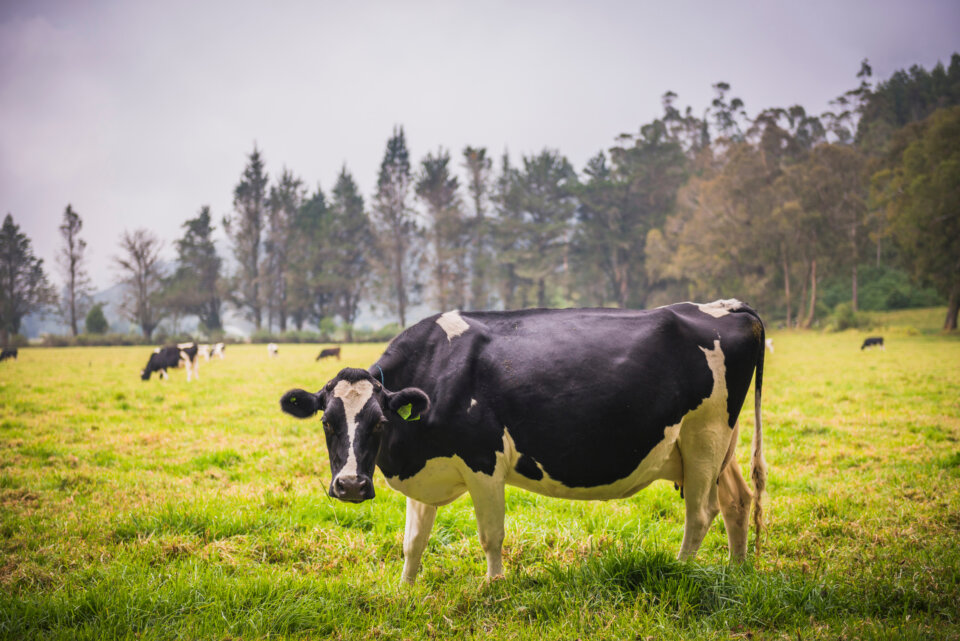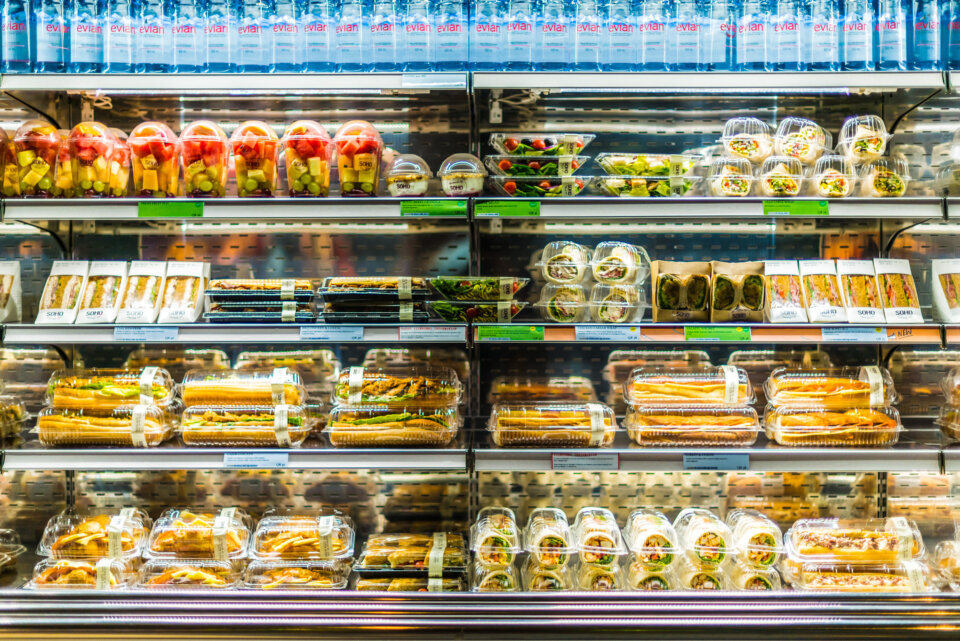Harnessing AI and NLP to Reduce Food-Related Carbon Footprints
Dr. Riza Batista-Navarro, a Senior Lecturer in Text Mining at The University of Manchester, and her team have developed an innovative solution to help reduce the environmental impact of food production by harnessing the power of Natural Language Processing (NLP) and Artificial Intelligence (AI).
Introducing Forkprint – an AI-based software tool that analyses food recipes in real time to calculate the carbon footprint of each ingredient and suggests lower-carbon alternatives, making it easier for individuals and organisations to make sustainable food choices.
The Problem
Food production contributes approximately 25% of global greenhouse gas emissions. However, many consumers are unaware of the carbon impact of their food choices and struggle to adopt sustainable eating habits. The lack of readily available information and actionable insights creates a barrier to more eco-conscious decisions.
The main ways the food industry adds to our carbon footprint:
- Transportation: Importing food from distant locations increases emissions from transportation, including trucks, ships, and airplanes, particularly for perishable goods.
- Food Processing: The energy used in processing food, including cooking, packaging, and preservation, adds to its carbon footprint.
- Agricultural Practices: Conventional farming methods that rely on synthetic fertilizers and pesticides can result in higher greenhouse gas emissions compared to organic or sustainable practices.
- Land Use Change: Deforestation and habitat destruction for agricultural expansion contribute significantly to carbon emissions, particularly in tropical regions.
- Food Waste: Wasted food not only represents lost resources but also produces methane emissions as it decomposes in landfills.
- Water Usage: The energy required for irrigation and water management in food production can contribute to carbon emissions, especially in water-scarce regions.
- Livestock Feed Production: The cultivation and transportation of feed for livestock also contribute to the overall carbon footprint of animal products.
- Refrigeration and Storage: The energy used to keep food fresh during storage and transportation contributes to greenhouse gas emissions, especially with perishable items.
- Dietary Choices: Consuming diets heavy in meat and dairy tends to have a higher carbon footprint compared to plant-based diets due to the resources required to raise livestock.
- Packaging: The materials and energy used in packaging food products can add to their carbon footprint, particularly with single-use plastics.
The Solution
Forkprint demystifies the carbon footprint of food by providing a software tool that uses advanced NLP techniques to automatically analyse recipes, assess their CO2 emissions, and offer greener substitutions for high-carbon ingredients..
Originally funded by Nesta (“The UK’s Innovation Agency for Social Good”), this collaboration between the University of Manchester’s NLP team and E.Mission Innovation Ltd. provides a seamless way for users to understand and reduce the environmental impact of their meals.
Key Features
- Real-Time Carbon Footprint Calculation: Analyses individual ingredients in recipes or entire menus to provide an accurate carbon footprint.
- Intelligent Ingredient Substitutions: Suggests alternative ingredients based on their environmental impact, allowing users to reduce their food-related carbon emissions by up to 11%.
- User-Friendly Interface: Available as a Chrome plugin and mobile application, users can quickly and easily access the carbon data of any online recipe.
Target Markets and Applications
- Recipe Websites: Integration of the Forkprint tool allows websites to offer users detailed environmental information about their recipes and suggest greener alternatives.
- Home Cooks: Individuals can make more sustainable choices by analysing recipes for carbon emissions and making informed ingredient substitutions.
- Food Service Industry: Restaurants, caterers, and recipe developers can analyse entire menus to lower their carbon footprint and offer eco-friendly options.
- Food Management Systems: The tool can also be integrated into existing systems to enhance their sustainability features.
Business Opportunity
We are actively seeking partnerships for licensing opportunities and further funding to expand the reach of Forkprint. Whether you’re a food service business, recipe website, or an individual passionate about sustainability, Forkprint offers a unique solution to help reduce the carbon impact of food.
Contact the Project Manager for more information and opportunities available with Forkprint.









